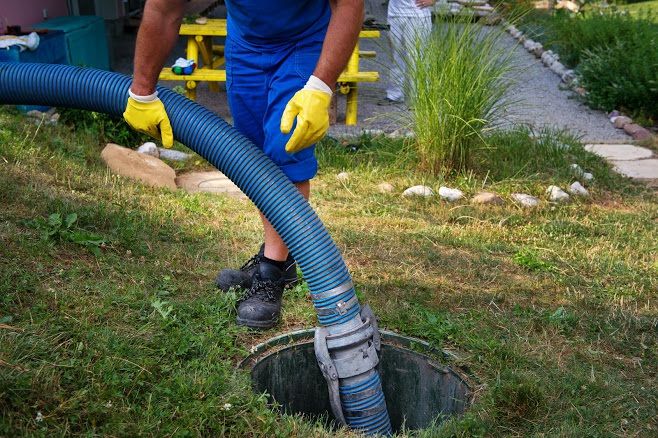FAQ About Purchasing a House With a Septic System

One in five US homes has a septic system. This means that the home's wastewater goes to an underground watertight septic tank rather than a
municipal sewer system. Deciding whether to buy a home with a septic system can be challenging. However, understanding the basics about home
septic systems can make the decision easier.
What Are the Benefits of Purchasing a Home With a Septic Tank?
First, homeowners connected to a municipal sewer incur a monthly cost for the service. If you have a septic tank, you don't pay this recurring cost
and save money.
Second, a septic system is environmentally friendly because it uses naturally occurring bacteria to neutralize hazardous contaminants in the
wastewater. The treated water later returns to the environment.
Third, with adequate maintenance and care, your septic tank can serve you for 15-40 years.
Lastly, in case of a blockage that causes waste backup in your home, you know it came from your septic tank. On the other hand, backup from a
municipal system can bring pathogens from an entire neighborhood.
What Should You Do Prior to Buying a House With a Septic Tank?
The most important thing is to call in a professional septic inspector. While a septic inspection may not be a legal requirement during a house sale,
it is advisable in order to avoid buying a home with numerous septic issues that are expensive to fix and cause unmerited headaches. A septic
inspection unveils the condition of the tank, drain field, and pipes and finds any underlying issues.
Should You Be Concerned When a Home Has a Septic Tank and a Well?
In most cases, homes with septic systems are not served by public sanitation systems - either sewer or water. Therefore, they may have a private
well to provide drinking water. In such a case, the location of both the septic system and well is important. They must be far apart to prevent the
septic system from contaminating the well water.
The secret for the two systems to co-exist is regular maintenance. First, have a septic expert examine your system regularly so that harmful
contaminants don't make their way to your well. Second, test your well water often to be certain it is safe.
How Do You Maintain a Septic System?
A septic system comes with several maintenance responsibilities to keep it operating correctly and prevent system failure. Below are a few septic
maintenance tips:
- Schedule periodic septic inspections, preferably every three years. If your tank has mechanical components like pumps and float switches,
opt for annual inspection. - Reduce your water consumption. Remember, all water used in your household - toilets, showers, sinks, and washing machines - ends up in
your septic tank. The less water you use, the less water ends up in the septic tank. - Schedule tank pumping every three to five years. The pumping frequency may increase depending on the tank size, amount of wastewater
generated, and household size. - Don't flush anything except toilet paper. Anything else - diapers, condoms, feminine hygiene products, and dental floss - belongs in the
trash can. Also, avoid pouring toxins like grease, cooking oil, paint, and chemicals into sinks, whether bathroom, kitchen, or utility.
How Do You Know Your Septic System Has a Problem?
The signs of a problematic septic tank include foul odors, slow drains, gurgling sounds, and clogs. Also, if you notice a soggy yard or lush grass
near the septic system, something is wrong, and a professional should check your system.
Get in touch with Southern Sanitary Systems Inc for septic tank services, from inspection to installation, repair, and maintenance. We are
experienced and responsive to answer any septic-related questions and offer maintenance advice.







